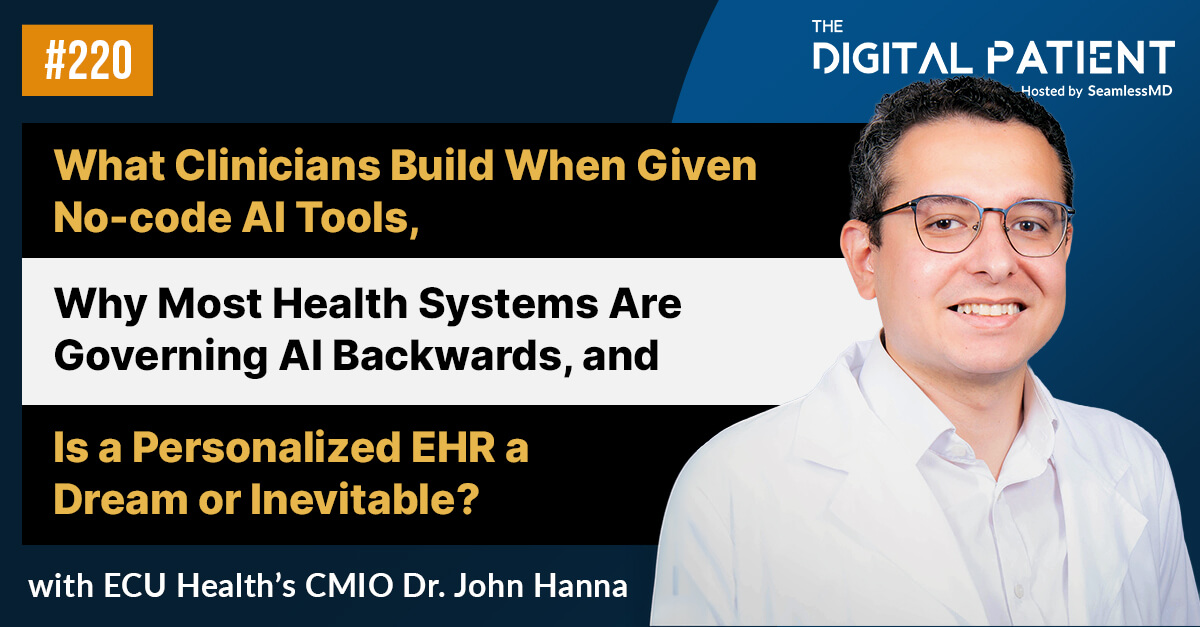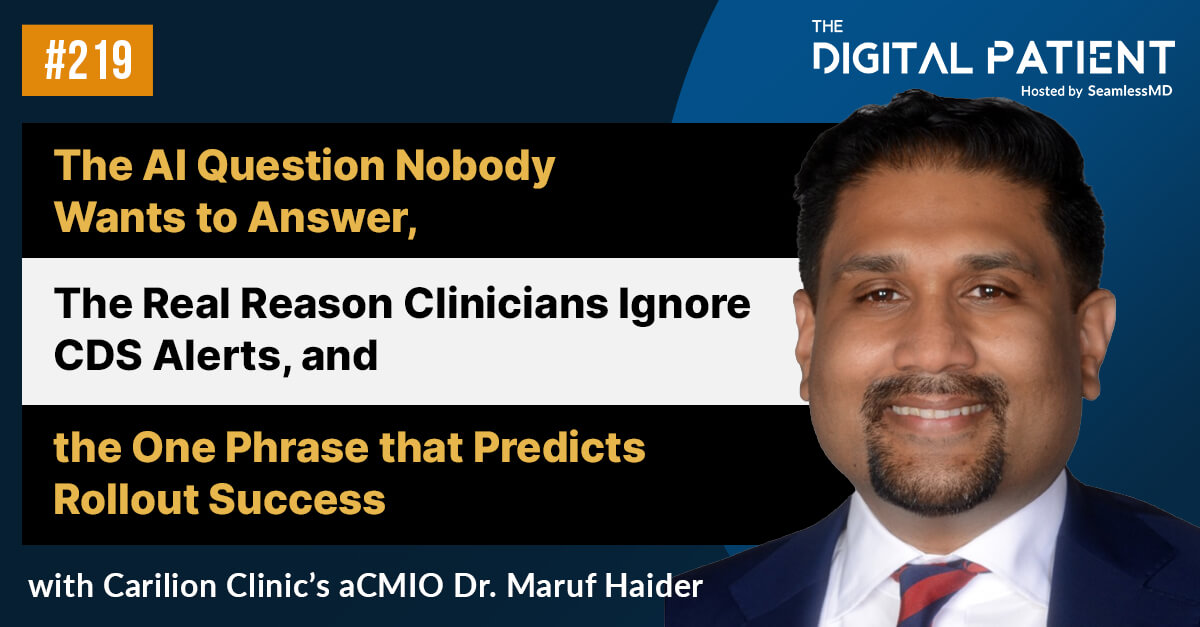Subscribe on: RSS | SPOTIFY | APPLE PODCAST | GOOGLE | BREAKER | ANCHOR
Video:
In this episode of the SeamlessMD Podcast, Dr. Joshua Liu, Co-founder & CEO at SeamlessMD, and marketing colleague, Alan Sardana, chat with Dr. Jay B. Shah, Vice Chief of Staff of Stanford Health Care, a staff surgeon and associate professor of Urology at Stanford University, and the Cancer Care Program Leader for Urologic Oncology at the Stanford Cancer Center. See the full show notes below for details.
Guest(s): Dr. Jay B. Shah (@BladderCancerMD), Vice Chief of Staff of Stanford Health Care, a staff surgeon and associate professor of Urology at Stanford University, and the Cancer Care Program Leader for Urologic Oncology at the Stanford Cancer Center
Dr. Joshua Liu (@joshuapliu), Co-founder & CEO at SeamlessMD
Episode 44 – Show notes:
[0:00-2:32] Introducing Dr. Jay B. Shah, Vice Chief of Staff of Stanford Health Care, a staff surgeon and associate professor of Urology at Stanford University and the Cancer Care Program Leader for Urologic Oncology at the Stanford Cancer Center;
[2:33-4:25] Why Dr. Shah is passionate about continuously finding ways to optimize surgical recovery beyond traditional measures to minimize patient anxiety and uncertainty;
[4:26-13:02] Why Dr. Shah has been an early adopter of:
- ERAS for Urology and its components for improved surgical outcomes;
- Prehabilitation to ensure patients are more physically fit prior to surgery, as this typically leads to a smoother recovery;
[13:02-17:00] How Stanford is a “tech-hub” that embraces technology’s potential to improve medicine, provider workflow, and the future of patient outcomes;
[17:00-25:00] Why Dr. Shah was motivated to bring digital care to patients undergoing:
- Cystectomies, to increase hands-on care and communication, thus preventing post-op complications and decreasing readmissions;
- Prostatectomies, to collect patient reported outcome (PRO) data;
[25:00-27:31] How the collection of PRO data can help patients feels more engaged in their recovery, and can also be referenced later for continuous quality improvement;
[27:31-31:36] How to introduce the implementation of a digital patient engagement platform to your institution, while recognizing that every institution is different and therefore the approach should be tailored to fit that particular environment;
[31:36-38:47] How the pandemic has set a new standard for care delivery that has increased convenience and patient access to care;
[38:47-42:22] How Dr. Shah’s decision to specialize in a specific area of urology (bladder cancer care) rather than continuing to deliver broad urological care has led to elevated confidence when treating patients;
[42:22-46:13] Why value-based care within urology is the future of healthcare in the U.S, helping to promote more effective use of resources while minimizing costs;
[46:13] Fast Five / Lightning Round Questions:
Q1: What is your favorite book or book you’ve gifted the most?
A1: “Crucial Conversations,” by Kerry Patterson, Joseph Grenny, Ron McMillan & Al Switzler
Q2: How has an apparent failure set you up for greater success?
A2: Dr. Shah on when he first got to Stanford: “I wanted to just impart all this wisdom that I thought I had, and I realized that I was actually not being effective. The people who would have wanted the same things to happen were actually resisting, and I learned that that was because of the way I was going about doing it - and that was really humbling for me.”
Q3: Would you rather have super strength, super speed, or the ability to read people’s minds?
A3: “Read people’s minds.”
Q4: What is something in healthcare you believe that others might find insane?
A4: “The fact that we do medicine in exactly the same way that our grandparents did.”
Q5: What is 1 hobby or activity you’ve gotten into since the pandemic?
A5: “Sourdough, bagels and bread making.”
.svg)










.png)
